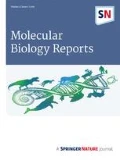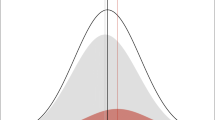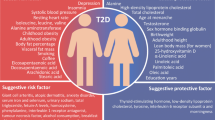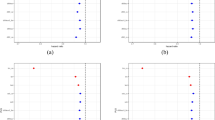Abstract
The FTO (fat mass and obesity-associated) gene has a strong linkage disequilibrium block, within which SNPs have been identified that are involved in the development of obesity. Recently some of these variants have also been associated with cancer. However, identification of the possible mechanisms that could explain these associations has proven to be elusive. It has been found that FTO polymorphisms can regulate the expression of genes at large kilobases of distance as well as the expression of the FTO gene itself, and regions for transcription factor binding. To date it has been observed that variants rs9939609, rs17817449, rs8050136, rs1477196, rs6499640, rs16953002, rs11075995 and rs1121980 are associated with the risk of developing cancer. Some studies have produced negative results when comparing the same polymorphisms, but make a simple association between polymorphic variants and cancer, have proved difficult because this relation is by nature multifactorial. A certain degree of variation resulting from the improper design of studies or processing of data can lead to erroneous conclusions. However, it is now unquestionable that certain FTO polymorphisms regulate genetic expression related to cancer susceptibility, although this field is just beginning to be understood.
Similar content being viewed by others
References
Sur I, Tuupanen S, Whitington T et al (2013) Lessons from functional analysis of genome-wide association studies. Cancer Res 73:4180–4184
Finucane MM, Stevens GA, Cowan MJ et al (2011) National, regional, and global trends in body-mass index since 1980: systematic analysis of health examination surveys and epidemiological with 960 country-years and 9.1 million participants. Global burden of metabolic risk factors of chronic diseases collaborating group (Body Mass Index). Lancet 337:557–567
Haidar YM, Cosman BC (2011) Obesity epidemiology. Clin Colon Rectal Surg 24:205–210
Calle EE, Kaaks R (2004) Overweight, obesity and cancer: epidemiological evidence and proposed mechanisms. Nat Rev Cancer 4:579–591
Ligibel JA, Strickler HD (2013) Obesity and its impact on breast cancer. Am Soc Clin Oncol Educ Book 2013:52–59
Calle EE, Rodriguez C, Walker-Thurmond K, Thun MJ (2003) Overweight, obesity, and mortality from cancer in a prospective studied cohort of U.S. adults. N Engl J Med 348:1625–1638
Sarfstein R, Friedman Y, Attias-Geva Z et al (2013) Metformin downregulates the insulin/IGF-I signaling pathway and inhibits different uterine serous carcinoma (USC) cells proliferation and migration in p53-dependent or -independent manners. PLoS One 8:e61537
Huang Z, Hankinson SE, Colditz GA et al (1997) Dual effects of weight and weight gain on breast cancer risk. JAMA 278:1407–1411
Trentham-Dietz A, Newcomb PA, Storer BE et al (1997) Body size and risk of breast cancer. Am J Epidemiol 145:1011–1019
Anderson GL, Chlebowski RT, Aragaki AK et al (2012) Conjugated equine oestrogen and breast cancer incidence and mortality in postmenopausal women with hysterectomy: extended follow-up of the Women’s Health Initiative randomised placebo-controlled trial. Lancet Oncol 13:476–486
Scuteri A, Sanna S, Chen WM et al (2007) Genome-wide association scan shows genetic variants in the FTO gene are associated with obesity-related traits. PLoS Genet 3:e115
Herrera BM, Lindgren CM (2010) The genetics of obesity. Curr Diab Rep 10:498–505
Frayling TM, Timpson NJ, Weedon NM et al (2007) A common variant in the FTO gene is associated with body mass index and predisposes to childhood and adult obesity. Science 316:889–894
Speliotes EK, Willer CJ, Berndt SI et al (2010) Association analyses of 249,796 individuals reveal 18 new loci associated with body mass index. Nat Genet 42:937–948
Stratigopoulos G, Padilla SL, LeDuc CA et al (2008) Regulation of Fto/Ftm gene expression in mice and humans. Am J Physiol Regul Integr Comp Physiol 294:R1185–R1196
Boissel S, Reish O, Proulx K et al (2009) Loss-of-function mutation in the dioxygenaseencoding FTO gene causes severe growth retardation and multiple malformations. Am J Hum Genet 85:106–111
Meyre D, Proulx K, Kawagoe-Takaki H et al (2010) Prevalence of loss of function FTO mutations in lean and obese individuals. Diabetes 59:311–318
Chorley BN, Wang X, Campbell MR et al (2008) Discovery and verification of functional single nucleotide polymorphisms in regulatory genomic regions: current and developing technologies. Mutat Res 659:147–157
Jowett JB, Curran JE, Johnson MP, Carless MA, Göring HH, Dyer TD et al (2010) Genetic variation at the FTO locus influences RBL2 gene expression. Diabetes 59(3):726–732
Berulava T, Horsthemke B (2010) Comment on: Jowett et al. (2010) Genetic variation at the FTO locus influences RBL2 gene expression. Diabetes; 59:726–732. Diabetes 59:e9
Berulava T, Horsthemke B (2010) The obesity-associated SNPs in intron 1 of the FTO gene affect primary transcript levels. Eur J Hum Genet 18:1054–1056
Smemo S, Tena JJ, Kim KH, Gamazon ER, Sakabe NJ, Gómez-Marín C et al (2014) Obesity-associated variants within FTO form long-range functional connections with IRX3. Nature 507:371–375
Brennan P, McKay J, Moore L et al (2009) Obesity and cancer: Mendelian randomization approach utilizing the FTO genotype. Int J Epidemiol 38:971–975
Lewis SJ, Murad A, Chen L et al (2010) Associations between an obesity related genetic variant (FTO rs9939609) and prostate cancer risk. PLoS One 5:e13485
Nock NL, Plummer SJ, Thompson CL et al (2011) FTO polymorphisms are associated with adult body mass index (BMI) and colorectal adenomas in African-Americans. Carcinogenesis 32:748–756
Hubacek JA, Dlouha D (2012) The risk of sporadic colorectal cancer development is not influenced by fat mass and obesity related gene polymorphism in Slavs. Eur J Intern Med 23:e175–e176
Tarabra E, Actis GC, Fadda M et al (2012) The obesity gene and colorectal cancer risk: a population study in Northern Italy. Eur J Intern Med 23:65–69
Lim U, Wilkens LR, Monroe KR et al (2012) Susceptibility variants for obesity and colorectal cancer risk: the multiethnic cohort and PAGE studies. Int J Cancer 131:E1038–E1043
Tang H, Dong X, Hassan M et al (2011) Body mass index and obesity- and diabetes-associated genotypes and risk for pancreatic cancer. Cancer Epidemiol Biomarkers Prev 20:779–792
Pierce BL, Austin MA, Ahsan H (2011) Association study of type 2 diabetes genetic susceptibility variants and risk of pancreatic cancer: an analysis of PanScan-I data. Cancer Causes Control 22:877–883
Li G, Chen Q, Wang L, Ke D, Yuan Z (2012) Association between FTO gene polymorphism and cancer risk: evidence from 16,277 cases and 31,153 controls. Tumour Biol 33:1237–1243
Lin Y, Ueda J, Yagyu K, Ishii H, Ueno M, Egawa N et al (2013) Association between variations in the fat mass and obesity-associated gene and pancreatic cancer risk: a case-control study in Japan. BMC Cancer 8(13):337
Kitahara CM, Neta G, Pfeiffer RM et al (2012) Common obesity-related genetic variants and papillary thyroid cancer risk. Cancer Epidemiol Biomarkers Prev 21:2268–2271
Delahanty RJ, Beeghly-Fadiel A, Xiang YB et al (2011) Association of obesity-related genetic variants with endometrial cancer risk: a report from the Shanghai endometrial cancer genetics study. Am J Epidemiol 174:1115–1126
Lurie G, Gaudet MM, Spurdle AB et al (2011) The obesity-associated polymorphisms FTO rs9939609 and MC4R rs17782313 and endometrial cancer risk in non-Hispanic white women. PLoS One 6:e16756
Gaudet MM, Yang HP, Bosquet JG et al (2010) No association between FTO or HHEX and endometrial cancer risk. Cancer Epidemiol Biomarkers Prev 19:2106–2109
Brinton L, Swanson C (1992) Height and weight at various ages and risk of breast cancer. Ann Epidemiol 2:597–609
Long J, Zhang B, Signorello LB et al (2013) Evaluating genome-wide association study-identified breast cancer risk variants in African-American women. PLoS One 8:e58350
Kaklamani V, Yi N, Sadim M et al (2011) The role of the fat mass and obesity associated gene (FTO) in breast cancer risk. BMC Med Genet 12:52
Kusinska R, Górniak P, Pastorczak A et al (2012) Influence of genomic variation in FTO at 16q12.2, MC4R at 18q22 and NRXN3 at 14q31 genes on breast cancer risk. Mol Biol Rep 39:2915–2919
Brooks JD, Bernstein L, Teraoka SN, Knight JA, Mellemkjær L, John EM et al (2012) Variation in genes related to obesity, weight, and weight change and risk of contralateral breast cancer in the WECARE Study population. Cancer Epidemiol Biomarkers Prev 21:2261–2267
Garcia-Closas M, Couch FJ, Lindstrom S et al (2013) Genome-wide association studies identify four ER negative-specific breast cancer risk loci. Nat Genet 45:392–8, 398e1-2
da Cunha PA, de Carlos Back LK, Sereia AF et al (2013) Interaction between obesity-related genes, FTO and MC4R, associated to an increase of breast cancer risk. Mol Biol Rep 40:6657–6664
Iles MM, Law MH, Stacey SN et al (2013) A variant in FTO shows association with melanoma risk not due to BMI. Nat Genet 45:428–432
Author information
Authors and Affiliations
Corresponding author
Rights and permissions
About this article
Cite this article
Hernández-Caballero, M.E., Sierra-Ramírez, J.A. Single nucleotide polymorphisms of the FTO gene and cancer risk: an overview. Mol Biol Rep 42, 699–704 (2015). https://doi.org/10.1007/s11033-014-3817-y
Received:
Accepted:
Published:
Issue Date:
DOI: https://doi.org/10.1007/s11033-014-3817-y




